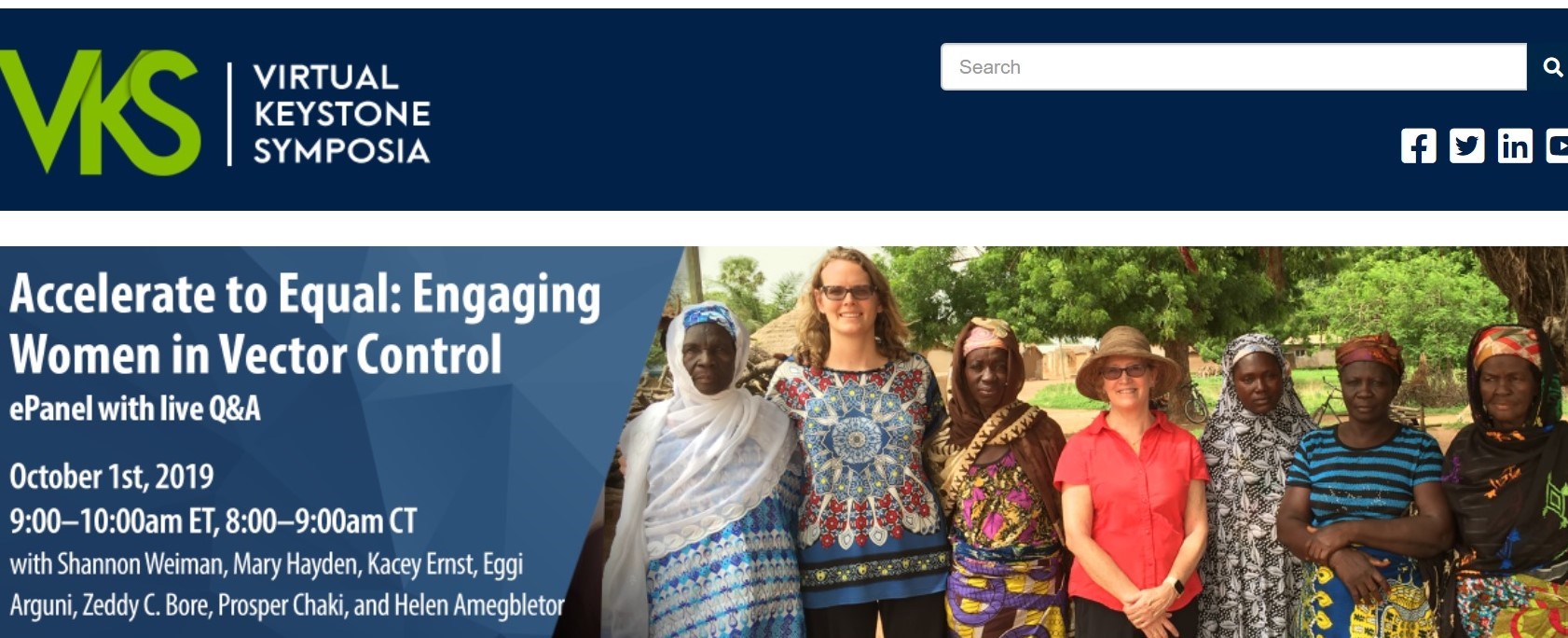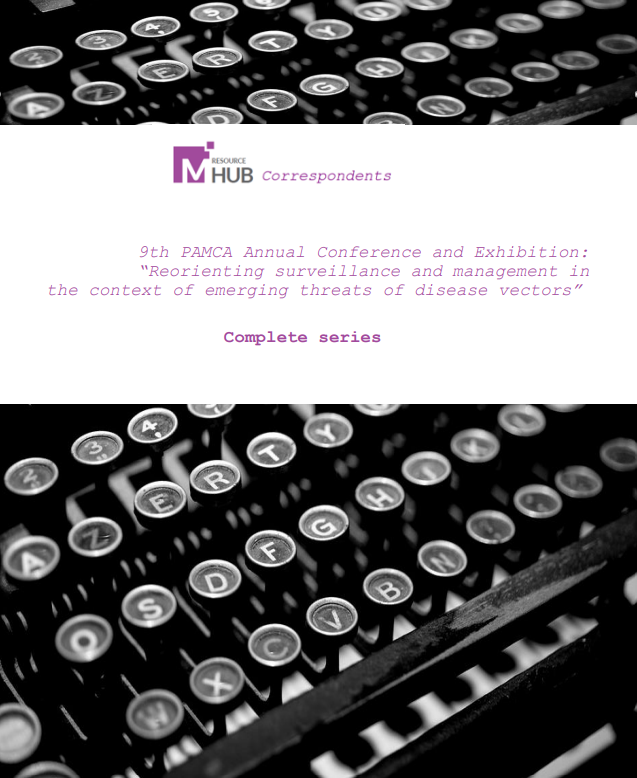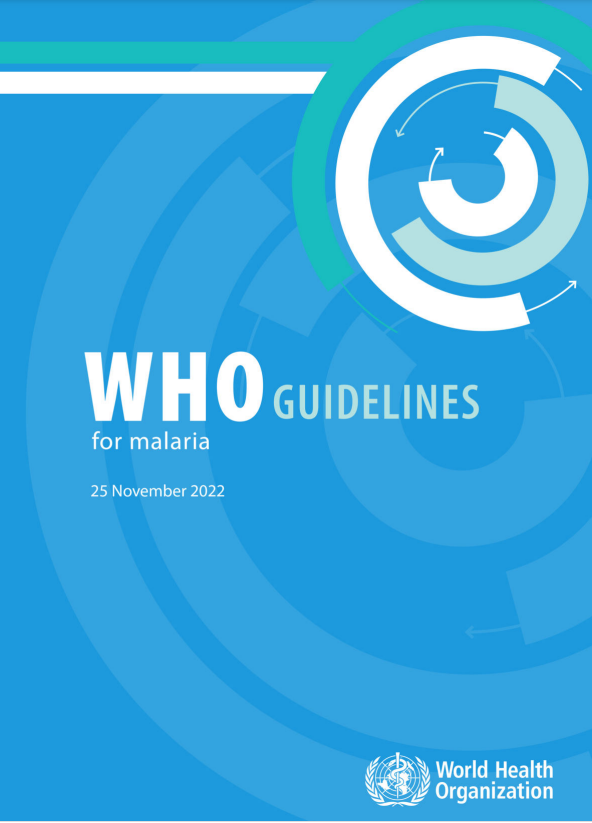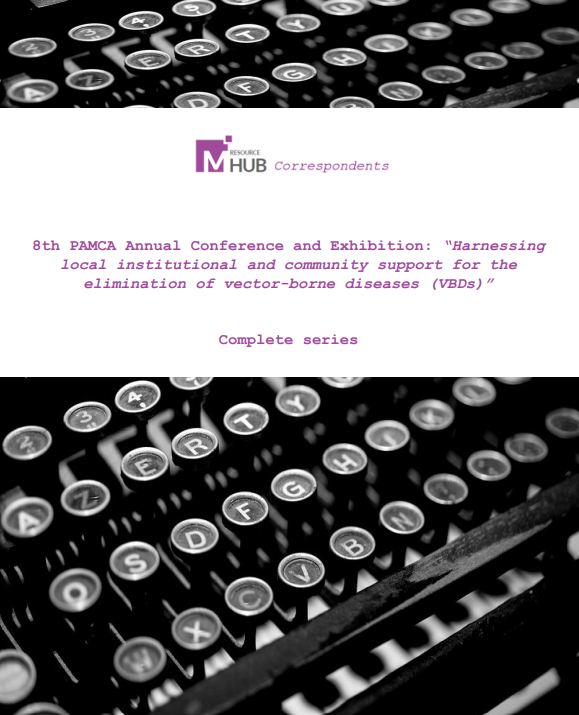Summary of the e-panel discussion “Accelerate to Equal: Engaging Women in Vector Control”
Published: 23/10/2019
When it comes to gender and vector-borne diseases, Kacey Ernst (University of Arizona) states ‘Vector-borne diseases are women’s issues because they disproportionately affect women, particularly pregnant women. During pregnancy, women are more susceptible to really severe outcomes for malaria…and with other disease like zika you also have negative consequences for women’ making it a gendered health burden. Women are often the primary care givers and are responsible for the household maintenance in endemic regions, a significant factor as to why the initiative targets women specifically for vector control efforts. Ernst explains that a more systematic approach to incorporate a gender focus in vector control is needed.
The role of technology in vector control efforts
Panel members discuss how technology can be utilised to improve efficiencies and assist project initiatives. Helen Amegbletor (PMI Vector Link, Ghana) and Zeddy Bore (PMI Vector Link, Kenya) share examples of different ways that mobile and technology based systems have been implemented for disease prevention programmes. Helen gives the example of an SMS system for warnings against sexual harassment in the workplace. She states ‘we want to create an environment where women feel free and can work equally as men, so they don’t have to have that fear of the males…so we have gender based messages that are scheduled and used to reinforce the policies’.
The availability of ‘real-time feedback’ is strategic for taking ‘prompt action’ in response to outbreaks Bore explains. SMS systems aid the delivery of timely decision making through prompt data analysis and responses. Geo-located health data also helps to quickly locate exactly where and when the outbreak took place.
Eggi Arguni (Universitas Gadjah Mada) gives her perspective as a clinician treating cases of dengue infection in Indonesia. Eggi expresses the impact physicians have when raising the alarm to public health officials within a 24 hour reporting window if they suspect a patient has dengue fever. She describes the cascade effect where reporting leads to active case finding, searching of febrile cases using the patient’s house as at an index point and identifying breeding sites. The data collected is then reported back to the public health centre who then decide on an appropriate response.
Overcoming the challenges to women’s engagement
The panellists examine female empowerment through the lens of accessibility, opportunity, awareness, promotion and safety conditions.
Mary Hayden (University of Colorado) and Ernst describe the ‘Accelerate to Equal initiative’, which focuses on engaging women’s roles in vector control efforts across household, community and professional levels in Kenya and Indonesia.
Bore gives a thorough description of the ways women can be empowered to be leaders in vector control and how best to promote such participation. From targeting influential leaders within the community, to ensuring that artwork on posters features women, as well as providing training opportunities that include pregnant women. Bore illustrates the importance of tangible steps in creating a social shift among societies that see vector control roles as ‘men’s work’. Bore states that, ‘sexual harassment is the greatest enemy to women’s participation’, the PMI Vector Link initiative address this issue through their zero tolerance sexual harassment policy and takes steps such as regular unanimous reporting and consistent warnings against sexual harassment.
From evidence to practice
To conclude, panel members share ideas about how to bridge the gap between research and scalable, effective implementation and innovation. Prosper Chaki (PAMCA) calls for researchers to do more to make their work relevant to local implementers and communities. He identifies that researchers habitually fail to ‘break down the evidence’ into layman terms, which frequently results in published work ‘sitting on shelves’. Referencing the WHO Global Vector Control Response (GVCR), Prosper emphasises the report’s request for ‘evidence-based vector control’ solutions and says it is the duty of researches ‘to find a better way of translating that evidence into practice.’
The e-panel took place on Tuesday 1st October 2019 and was streamed live online and can be watched here.
This e-panel discussion is part of the Virtual Keystone Symposium initiative. The Virtual Keystone Symposium initiative aims to ‘bring more science to the global scientific community by leveraging digital media technologies’. Panel discussions are paired with a live Q+A session.
The participating panellists were:
- Mary H. Hayden, PhD, MA, University of Colorado
- Kacey C. Ernst, PhD, MPH, University of Arizona
- Helen Amegbletor, MA, The President’s Malaria Initiative (PMI) VectorLink
- Zeddy C. Bore, MPH, The President’s Malaria Initiative (PMI) VectorLink
- Eggi Arguni, MSc, PhD, Universitas Gadjah Mada
- Prosper Chaki, PhD, The Pan-African Mosquito Control Association (PAMCA)
The panel discussion was moderated by Keystone Symposia’s scientific and communications manager Shannon Weiman, PhD.
THEMES: Capacity Building | Health Systems | Operational Research | Social Science | Surveillance | Vector Control



